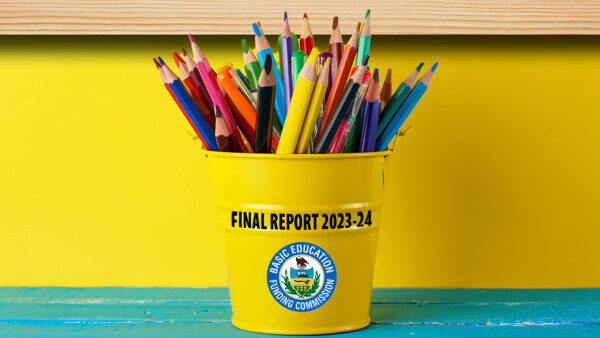
HARRISBURG – The Basic Education Funding Commission released its findings and recommendations to the General Assembly after six months of public hearings, including 97 testifiers and 1,104 public comments in 10 different counties, according to Sen. Camera Bartolotta (R-46).
The commission is statutorily charged to review and revise the education funding formula, which determines the amount of tax dollars coming from the state to each district. The commission found consensus on adjustments to the state’s current formula to provide greater budget stability to prevent drastic shifts in dollar amounts. This change would be especially helpful in areas impacted by poverty. The commission also suggests using the 2023-24 state budget allocations as the new baseline moving forward, ensuring students do not receive less funding from the state moving forward.
The commission also pointed to recently approved laws – Act 33 and 34 of 2023 – that prioritize funding for school maintenance projects and lead paint and asbestos remediation as positive steps taken by the General Assembly.
“The purpose of this commission was to improve and strengthen the Basic Education Funding formula, not for certain parties to determine how much more they want to spend over the next five years, especially outside of the context of the state budget without regard to taxpayers’ ability to pay,” said Bartolotta.
The commission’s recommendations were not unanimous, however, with Republicans concerned that future spending plans suggested by Democrats could exceed $7 billion in new funding that would worsen the state’s financial position and force massive tax hikes on hardworking Pennsylvanians. The state’s nonpartisan Independent Fiscal Office predicts that the state will face a $3 billion shortfall based on current budget projections by 2025, even before the Democrats’ proposed new money for education.
“Of the $17.8 billion currently spent on education, $15.5 billion supports public schools across the Commonwealth. The Basic Education subsidy alone has increased by approximately $1.65 billion since the pandemic. The court did not instruct us to blindly pour more money into the education system – the court told us to fix the system,” said Bartolotta. “I am a strong supporter of public education and voted for the historic investments we have made already. However, the reforms we advance in education, including increased funding, must improve student achievement and respect the taxpayers who pay our bills.”
Republicans on the commission pushed for greater accountability in their own report, saying former Gov. Tom Wolf and current Gov. Josh Shapiro have deemed recent education funding increases since the pandemic as “historic,” but outcomes need to improve with those massive influx of tax dollars.
The commission’s recommendations can be found on its website.
CONTACT: Katrina Hanna, 717-787-1463


